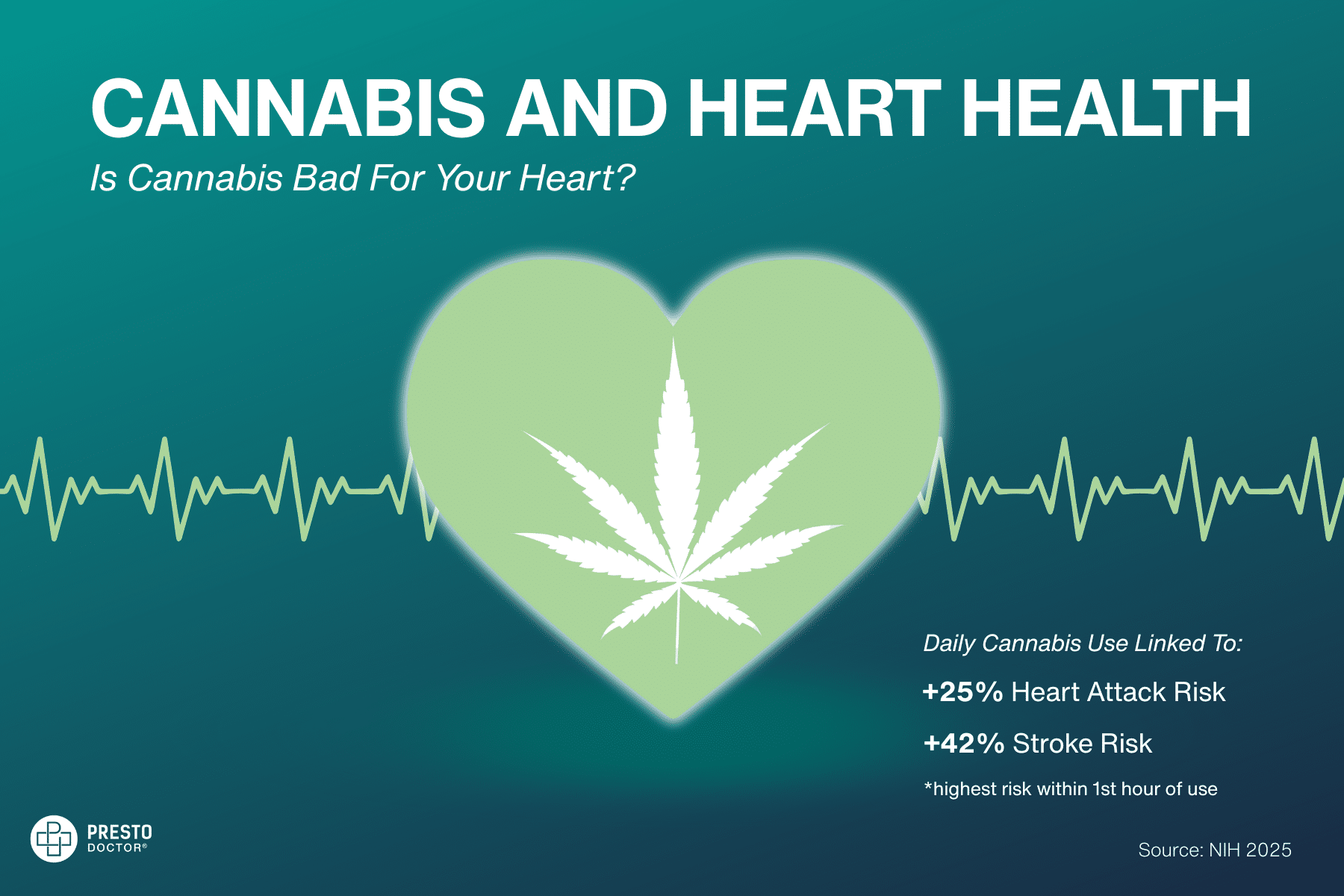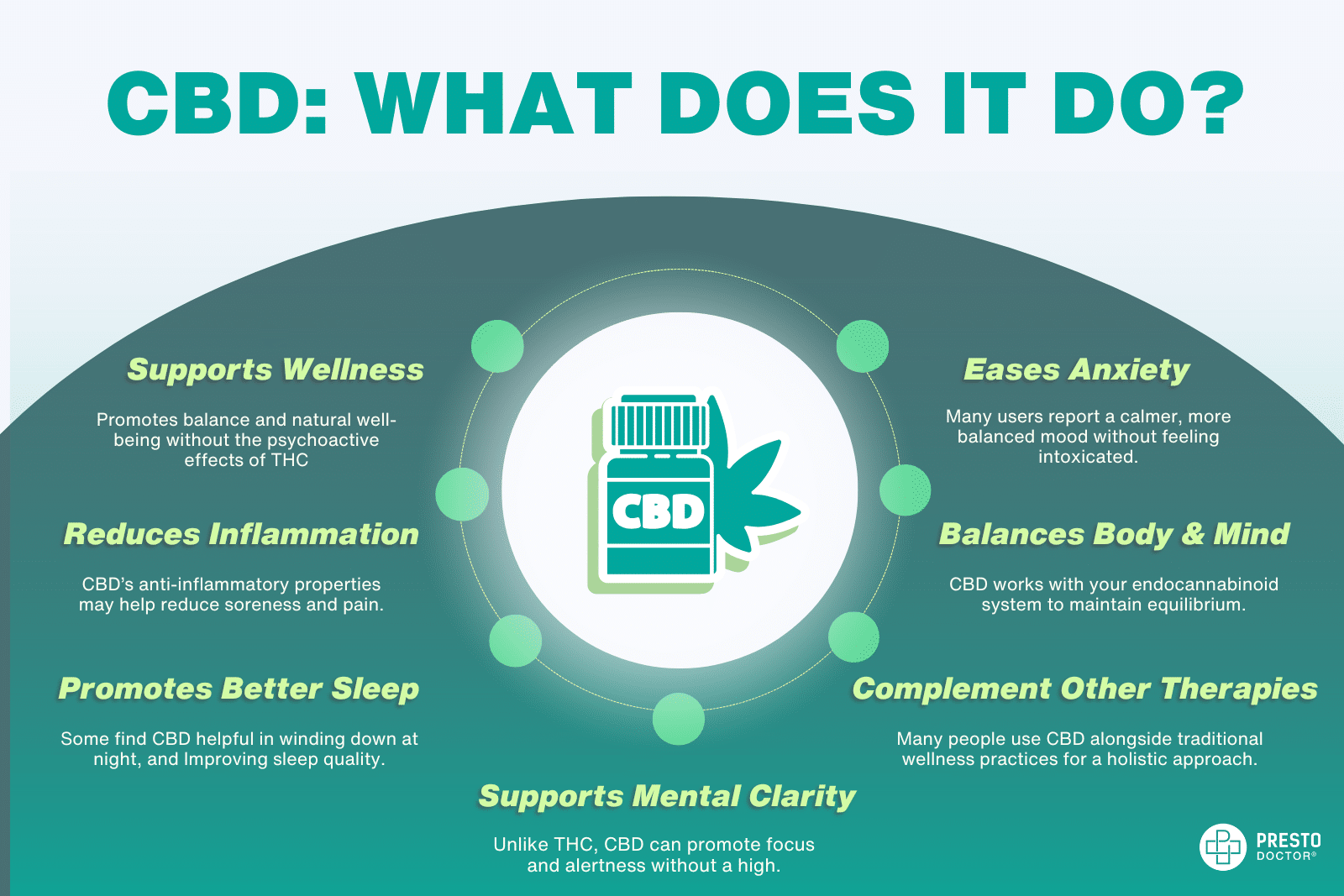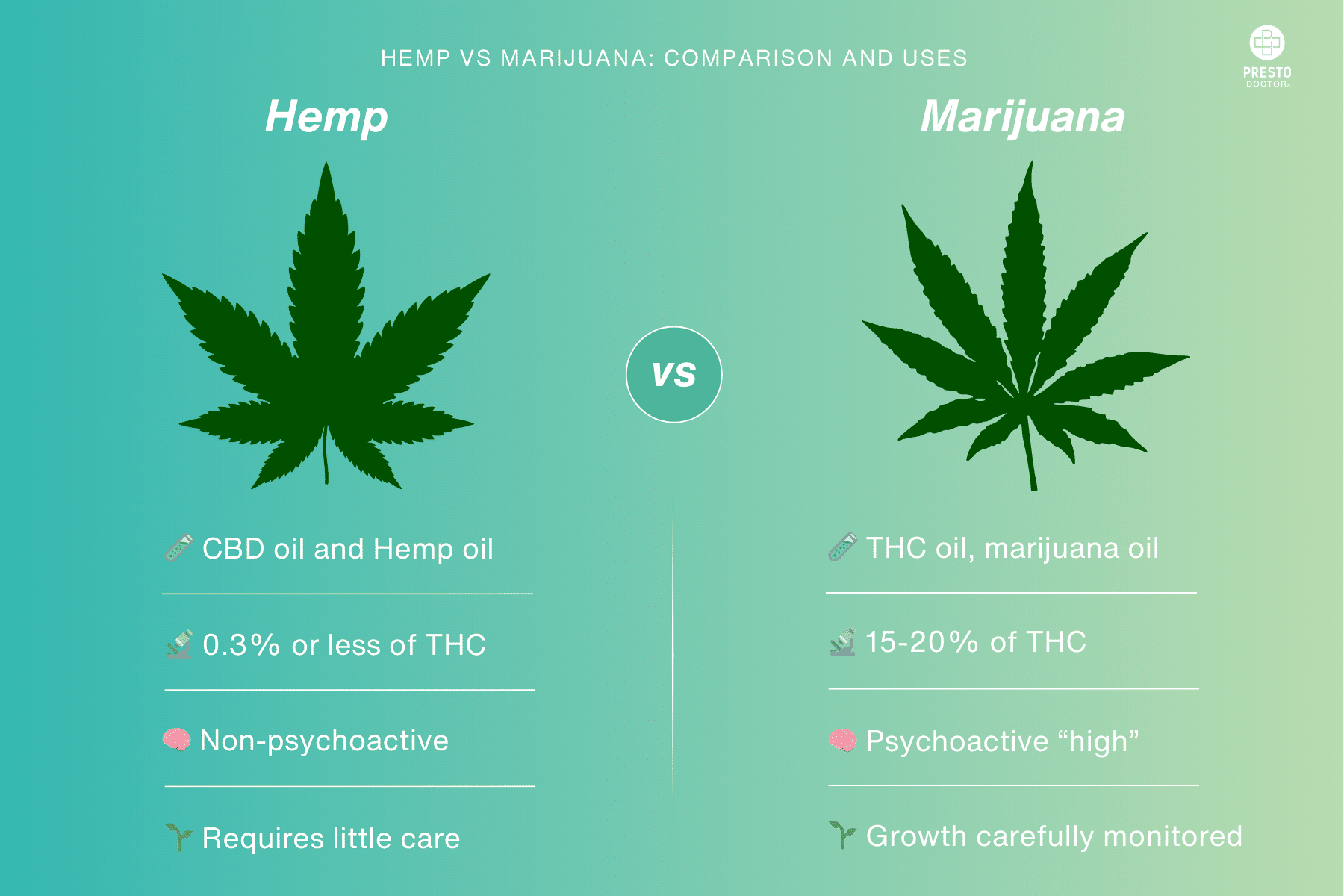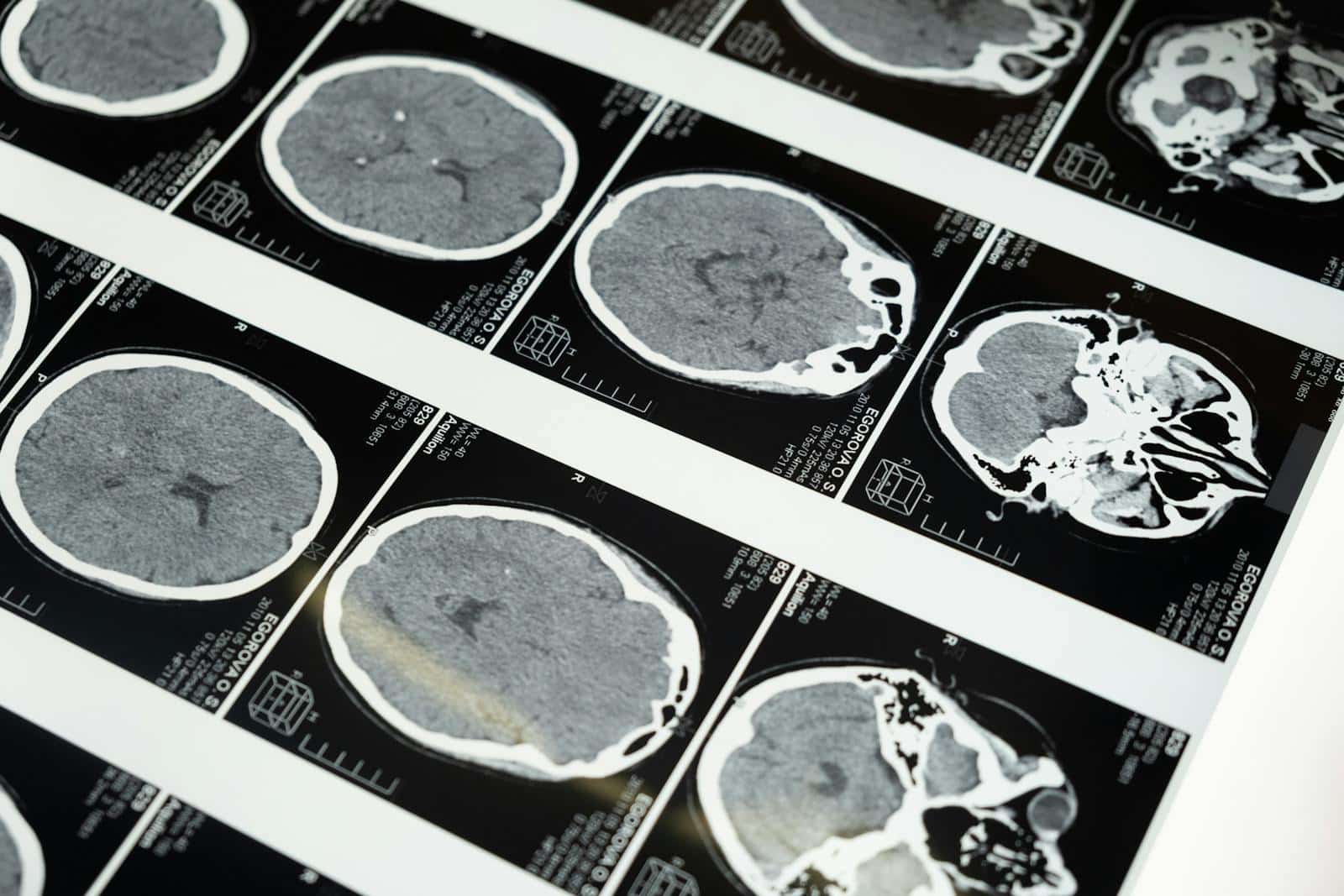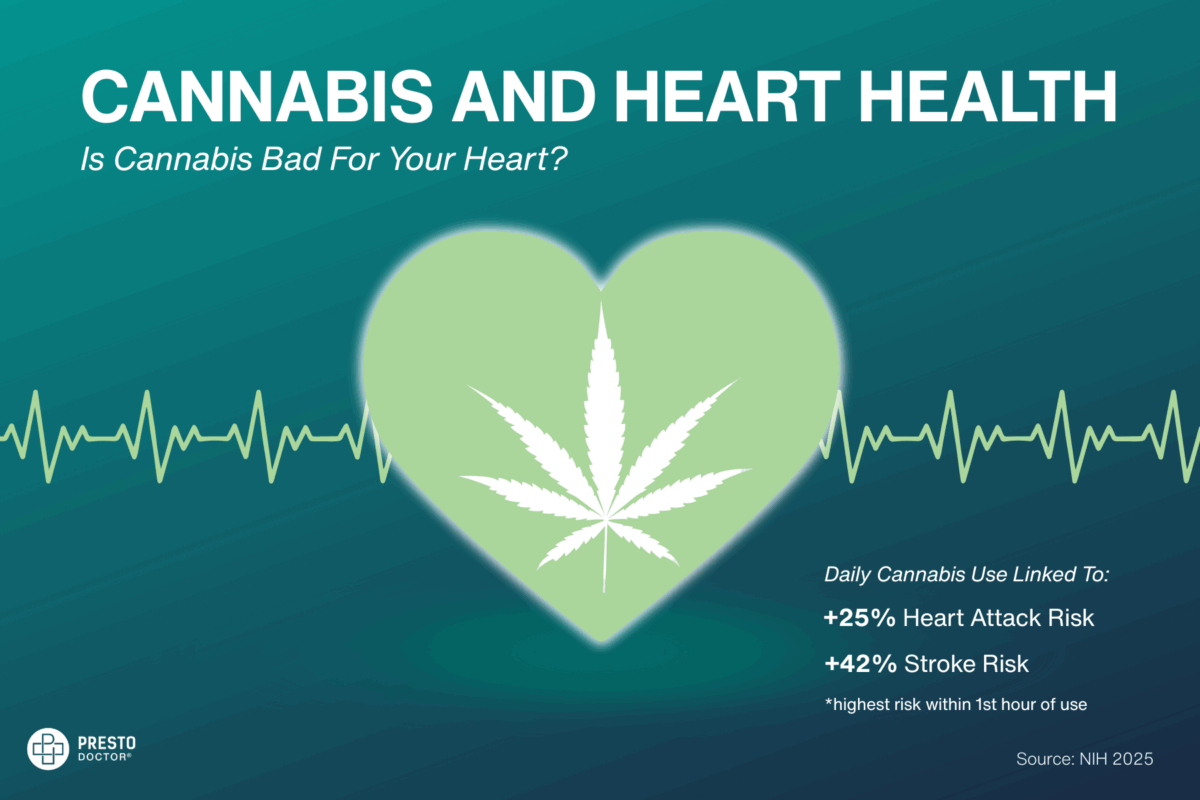
Is Cannabis Bad for Your Heart?
Cannabis use is increasingly popular for both recreational and medical purposes. However, concerns about its impact on cardiovascular health are growing. Recent studies reveal compelling evidence that cannabis use—especially when smoked—can significantly increase the risk of heart attack, stroke, hypertension, and other cardiovascular health problems such as heart disease. Many wonder, do THC edibles have less risk on cardiovascular health compared to smoking cannabis? What are the long-term risks of cannabis use on our cardiovascular system? In this comprehensive guide, we delve into the science to answer the crucial question: is cannabis bad for your heart, or could marijuana use have effects on cardiovascular health we’re only beginning to understand?
Key Findings from Recent Studies
Multiple recent studies provide clear data on how cannabis—whether smoked or consumed as edibles—impacts cardiovascular health:
- NIH Study: Daily cannabis use is linked to a 25% increased risk of heart attack and a 42% increased risk of stroke (NIH, 2025).
- UCSF Research: Whether smoked or consumed as edibles, cannabis increases the risk of heart disease and negatively affects vascular function (UCSF, 2025).
- People.com Report: THC edibles have been linked to cardiovascular risk including early heart disease and reduced blood vessel function (People, 2025).
How Cannabis Affects the Heart and Blood Vessels
Researchers have identified several physiological mechanisms that explain why cannabis can harm the cardiovascular system:
- Increased heart rate (tachycardia) and blood pressure after use.
- Oxidative stress and inflammation that damage blood vessels and the cardiovascular system.
- Promotion of vasospasm, endothelial dysfunction, and platelet aggregation, which can trigger clot formation.
THC, the main psychoactive compound in cannabis, plays a central role in these cardiovascular effects.
Acute Cardiovascular Effects of Cannabis Use
Evidence suggests that the risk of heart attack and stroke is highest within the first hour after using cannabis—especially when smoked. Acute cardiovascular impacts include:
- Higher risk of myocardial infarction (heart attack) shortly after cannabis use.
- Potential to trigger arrhythmias and sudden cardiac events.
- Increased oxygen demand by the heart, straining the cardiovascular system.
Long-Term Cardiovascular Risks of Chronic Cannabis Use
Frequent or long-term cannabis use can lead to chronic cardiovascular issues:
- Persistent vascular stiffness and reduced endothelial function.
- Elevated risk of atherosclerosis and plaque buildup, increasing heart disease risk.
However, studies like the CARDIA study highlight mixed findings, suggesting more research is necessary to fully understand these long-term impacts.
The Debate: Smoking Cannabis vs. Edibles and Other Forms
Smoking cannabis, similar to tobacco smoking, introduces harmful combustion byproducts that damage cardiovascular health and blood vessel function. This reinforces why smoking cannabis is particularly harmful for heart health. However, even cannabis edibles, which avoid inhalation risks, have been linked to reduced blood vessel function and elevated heart disease risk due to THC’s direct cardiovascular effects.
Discussions in communities like Reddit highlight these nuances and the need for more granular data comparing smoking, vaping, and edible cannabis use on heart health.
User Demographics, Risk Factors, and Confounding Variables
Data shows that adults under 50 may face higher relative risks for heart attack and stroke due to cannabis use. Other factors such as obesity, high blood pressure, and cholesterol further complicate these risks.
A Reddit thread noted that obesity and other pre-existing cardiovascular issues can amplify the dangers of cannabis, emphasizing the importance of accounting for these factors when evaluating cannabis’ cardiovascular effects.
What is Considered Heavy or Long-Term Cannabis Use?
Clinicians generally define “heavy” or “chronic” cannabis use as:
- Using cannabis daily or nearly every day.
- High THC consumption in large amounts.
- Years of continuous use, which can impact blood vessel function and overall cardiovascular health.
This type of use is most strongly associated with cardiovascular harm in the current literature.
Can Cannabis Offer Any Heart Health Benefits?
While some limited research suggests cannabinoids may have anti-inflammatory properties, the overwhelming scientific consensus is that cannabis use—particularly heavy or frequent use—harms cardiovascular health rather than providing protective effects.
Expert Opinions and Cardiovascular Health Guidance
Leading heart health experts advise caution, especially for people with pre-existing cardiovascular conditions, high blood pressure, or cholesterol issues. Cardiologists recommend discussing cannabis use openly with a healthcare professional to understand personal risk factors and develop safe strategies.
Reducing Cardiovascular Risks: Prevention and Harm Reduction
If you choose to use cannabis, consider these harm-reduction steps:
- Reduce frequency and quantity of use to protect blood vessels and overall cardiovascular health.
- Choose edibles or tinctures over smoking to avoid inhaling combustion products.
- Monitor blood pressure, cholesterol, and heart health regularly.
- Maintain a heart-healthy lifestyle with exercise and balanced nutrition.
Final Thoughts on Cannabis, Heart Health, and Your Lifestyle
Overall, current evidence strongly indicates that cannabis use—especially frequent or heavy use—can substantially elevate cardiovascular risks, including heart attack, stroke, heart disease, and long-term vascular problems. Smoking cannabis is thought to be more harmful for cardiovascular health, but edibles are still not ruled out as completely safe for heart health. While some findings remain inconclusive, caution is advised, particularly for those with existing heart disease or risk factors.
As cannabis legalization and usage expand, ongoing research is essential to provide clear answers. In the meantime, individuals should weigh any potential benefits against the well-documented cardiovascular harms to make informed choices about cannabis and heart health.
Frequently Asked Questions (FAQs)
Is cannabis healthy for the heart?
No. Most research indicates cannabis use, especially when smoked or used frequently, harms heart health and increases the risk of heart attack, stroke, and hypertension.
What are the long-term effects of cannabis use on cardiovascular health?
Long-term cannabis use can stiffen blood vessels, reduce vascular function, and contribute to atherosclerosis and other cardiovascular diseases.
Are edibles and THC drinks bad for your heart in the long term?
While edibles avoid inhalation risks, they still deliver THC, which can reduce blood vessel function and potentially harm cardiovascular health over time.
What is considered heavy or long-term cannabis use?
Daily or near-daily cannabis use for extended periods is typically considered heavy or long-term use, carrying the highest cardiovascular risks.
How to reduce heart risks if using cannabis?
Use cannabis less frequently, avoid smoking it, maintain a healthy lifestyle, and discuss use with a doctor to identify and mitigate your cardiovascular risks.
Conclusion
Cannabis use, especially heavy or frequent use, is strongly associated with cardiovascular risks, including heart attack and stroke. These risks extend to both smoked and edible forms of cannabis. IIndividuals should make informed decisions about cannabis use by carefully weighing these cardiovascular concerns against any potential therapeutic or recreational benefits. For those with underlying heart issues, discussing cannabis use with a healthcare professional is crucial for personalized risk assessment. Talking with a healthcare professional is key to reducing risks and safeguarding long-term heart health.

